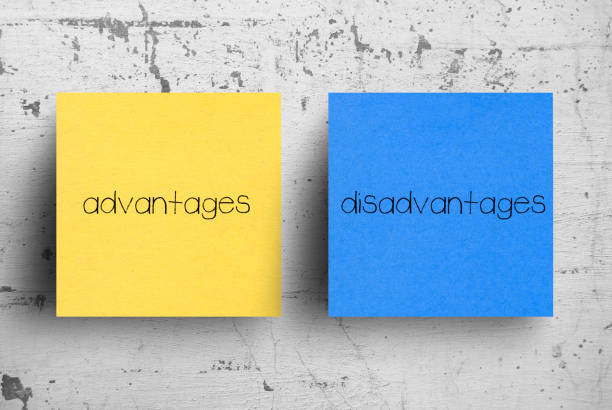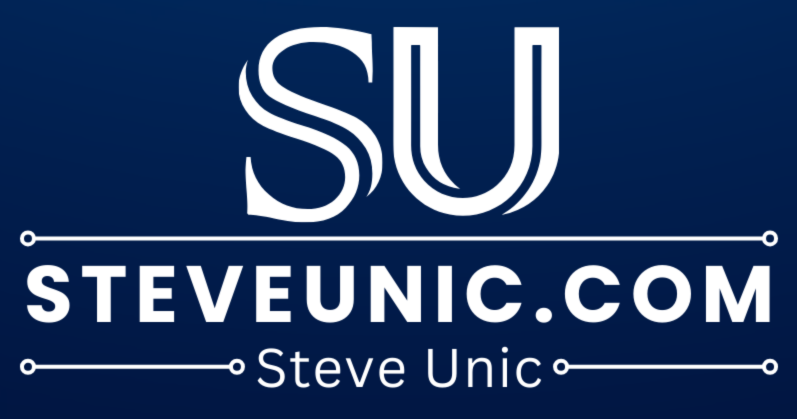
Escrow is a financial arrangement in which a third party holds and regulates the payment of funds between two parties involved in a transaction. It helps to provide trust and security in various financial transactions, reducing the risk of fraud, non-performance, or disputes between the parties involved. Using an escrow agent ensures that both parties adhere to the agreed-upon terms, promoting a smooth and reliable exchange of money or assets.
Escrow helps ensure the transaction is secure and transparent and that both parties fulfill their obligations before exchanging money or assets. There are specific situations where it is advised to hold money in Escrow. Here we will comprehensively look at 6 situations where you hold money in escrow.
Disclosure: My site is reader-supported. I may get commissions when you click through the affiliate links (that are great products I use and stand by) on my articles.

6 Situations Where You Hold Money In Escrow
- Escrow is a financial arrangement in which a third party holds and regulates the payment of funds between two parties involved in a transaction.
- Escrow helps ensure the transaction is secure and transparent and that both parties fulfill their obligations before exchanging money or assets.
What Is Escrow?
Escrow is a financial arrangement involving a neutral third party, often called an escrow agent or service provider, holding and regulating the payment of funds or assets on behalf of two parties involved in a transaction. The escrow agent holds the funds until specific conditions or requirements, as agreed upon by both parties, are met. Once these conditions are fulfilled, the funds or assets are released and disbursed according to the terms of the agreement.
The primary purpose of an escrow arrangement is to provide a secure and transparent way to conduct transactions, ensuring that both parties fulfill their obligations before exchanging money or assets. Escrow services are commonly used in various transactions, such as real estate transactions, business acquisitions, online transactions, construction projects, legal settlements, stocks, and intellectual property transactions.
The escrow process typically involves the following steps:
- Agreement: The parties involved agree to use an escrow service and define the terms and conditions necessary for the funds or assets to be released.
- Deposit: The party initiating the transaction deposits the funds or assets into the escrow account.
- Verification: The escrow agent verifies the deposit and securely holds the funds or assets.
- Fulfillment of Conditions: The party required to fulfill certain conditions, as specified in the agreement, must do so before the funds or assets can be released.
- Release: Once the conditions are met, the escrow agent disburses the funds or assets to the designated recipient(s) as per the agreement.
- Completion: The escrow process is considered complete when the funds or assets are released and the transaction is finalized.
What Does It Mean To Hold Money In Escrow

To hold money in escrow means that a neutral third party, called an escrow agent or service, temporarily holds and safeguards the funds on behalf of the two parties in a financial transaction. The escrow agent holds the funds until specific conditions, as agreed upon by both parties, are met. Once these conditions are fulfilled, the funds are released and disbursed according to the terms of the agreement.
The purpose of holding money in escrow is to provide a secure and transparent way to conduct transactions, assuring both parties that their interests are protected. It reduces the risk of fraud or non-performance by either party. The escrow agent acts as an intermediary, ensuring the agreed-upon conditions are satisfied before transferring the funds.
6 Situations Where You Hold Money In Escrow
Here are six situations where you might hold money in escrow:
- Real Estate Transactions
- Business Acquisitions
- Online Transactions
- Construction Projects
- Legal Disputes
- Stocks
1. Real Estate Transactions

One of the situations where you hold money in escrow is in real estate transactions. Holding money in escrow is a common practice in real estate to ensure a smooth and secure transfer of ownership from the seller to the buyer. Escrow provides a structured and secure way to facilitate real estate transactions, reducing the risk of fraud and ensuring a fair and smooth exchange of property ownership.
When you purchase a property, a significant amount of money is involved, and both parties want assurances that the transaction will proceed as agreed upon. The buyer and seller agree on the sale terms, the purchase price, contingencies (if any), and the expected closing date. Once the offer is accepted, opening an escrow account begins.
The buyer and/or the buyer’s agent deposit the earnest money (a deposit demonstrating the buyer’s commitment to the purchase) into an escrow account managed by a neutral third-party escrow agent or title company.
During the escrow period, various tasks are performed, such as a title search to ensure no liens or title issues, property inspections, and other due diligence to satisfy any contingencies outlined in the purchase agreement. For any issues that arise during the due diligence process, the parties may negotiate repairs, credits, or adjustments to the purchase agreement. If the contingencies are not met, the buyer may have the option to back out of the deal, and the earnest money may be returned.
If the buyer gets a mortgage loan, the lender will conduct an appraisal and underwriting process to determine the loan’s viability. The loan approval process usually occurs during the escrow period. The transaction is ready for closing once all contingencies are met, and the necessary paperwork is completed. At the closing, the buyer provides the remaining funds required for the purchase, and the seller transfers the property’s title to the buyer.
The escrow service or agent ensures that all necessary documents are signed, and funds are available. The agent then disburses the funds to the seller, pays off any existing liens on the property, and arranges for the new deed to be recorded with the appropriate authorities. Any remaining funds are returned to the buyer.
2. Business Acquisitions

In the context of business acquisitions, holding money in escrow is a common practice that helps protect both parties’ interests during the transaction. Business acquisitions involve substantial sums of money and complex negotiations, and escrow services ensure that the deal proceeds smoothly and that both interests are protected.
Using an escrow arrangement in business acquisitions, the buyer and seller gain additional security and confidence. The buyer knows that a portion of the purchase price is safeguarded until the necessary conditions are fulfilled, and any potential post-closing issues are addressed. Simultaneously, the seller can be assured that the buyer has the financial means and commitment to complete the acquisition. Escrow helps mitigate risks and ensures a smoother and more transparent acquisition process.
3. Online Transactions

Online transaction is one of the situations where you are advised to hold money in escrow. Holding money in escrow is a method of payment protection that ensures a safe and secure exchange of goods or services between the parties involved. Online transactions often involve parties who do not have a pre-existing relationship and may be located in different parts of the world. Escrow services act as a trusted intermediary to facilitate these transactions and minimize the risk of fraud and non-delivery.
Also, if you are into selling in e-commerce platforms, engaging freelance services, or conducting business-to-business transactions, it is essential to use escrow, especially when a substantial amount of money is involved. It fosters trust and confidence in online transactions, making it safer for buyers and sellers to conduct business with unknown parties.
4. Construction Projects
 In construction projects, holding money in escrow helps ensure that funds are safeguarded and disbursed appropriately during various project stages. Escrow services in construction projects provide financial security for both parties involved, such as the property owner or developer and the contractor.
In construction projects, holding money in escrow helps ensure that funds are safeguarded and disbursed appropriately during various project stages. Escrow services in construction projects provide financial security for both parties involved, such as the property owner or developer and the contractor.
The use of escrow services in construction projects helps the contractor to know that the funds are available and set aside for the project, which provides financial security and encourages them to complete the work as agreed upon.
While for the project owner, there is confidence that the funds will be disbursed in accordance with the project’s progress and successful completion of specific milestones.
In the case of any disagreements or issues, the escrow service can assist in resolving disputes, protecting the interests of both parties. Escrow services in construction projects promote transparency, accountability, and fair payment practices, reducing the risk of financial disputes and ensuring successful project completion.

6 Situations Where You Hold Money In Escrow
- Escrow is a financial arrangement in which a third party holds and regulates the payment of funds between two parties involved in a transaction.
- Escrow helps ensure the transaction is secure and transparent and that both parties fulfill their obligations before exchanging money or assets.
5. Legal Disputes

In legal disputes, holding money in escrow is a method to ensure that funds are held securely by a neutral third party until the dispute is resolved or until specific conditions outlined in an agreement are met. Escrow services in legal disputes help protect the interests of the parties involved and prevent any premature or unfair distribution of funds.
The parties involved in the legal dispute may agree, or a court may order, that the disputed funds be placed in escrow until the resolution of the dispute. In this situation, the terms and conditions for releasing the funds from escrow are specified in the agreement or court order. This could be contingent upon reaching a settlement, a court judgment, or the occurrence of specific events.
Legal disputes can arise in various contexts, such as contract disputes, personal injury cases, family law matters, and commercial litigation. Escrow services provide a reliable and transparent mechanism to handle disputed funds, promoting fairness and ensuring that the funds are distributed appropriately once the legal matter is resolved.
6. Stock Market

You can hold money in escrow in dealing with stock transactions. It is essential to note that while escrow-like mechanisms might exist in certain specific situations in the stock market, the general buying and selling of publicly traded stocks does not involve escrow arrangements. In regular stock market transactions, the funds and shares are usually settled and exchanged directly between buyers and sellers through their brokerage accounts. Holding money in escrow mainly applies to specific corporate actions or regulatory requirements rather than being a standard part of regular stock trading.
For instance, if a company is involved in a merger or acquisition, shares of the acquiring company’s stock may be placed in escrow to secure potential liabilities or ensure that certain conditions are met post-merger. If there are potential legal claims against the acquiring company related to the merger, shares of the acquiring company may be placed in escrow to cover any potential damages.
Another instance where an escrow-like mechanism is utilized is during initial public offerings (IPOs). In some IPOs, some shares issued to company insiders or key stakeholders may be subject to a lock-up period. This means these shares are held in escrow or under restrictions for a specified period after the IPO, during which they cannot be sold in the public market.
Additionally, in specific trading scenarios, escrow accounts may temporarily hold securities, such as stocks, to facilitate specific transactions or fulfill regulatory requirements.
What are the Advantages and Disadvantages of Escrow?

It is advised that you go through the advantages and disadvantages of escrow before deciding whether to use it. Comparing both sides will help you determine if it suits you or the situation.
Security and Protection:
Escrow provides a secure and protected environment for financial transactions. It ensures that the funds or assets are held by a neutral third party until all conditions are met, reducing the risk of fraud and providing assurance to both parties involved.
Risk Mitigation:
Escrow reduces the risks associated with financial transactions, particularly in cases where parties do not have an established relationship or are engaged in high-value deals. It helps ensure that both parties fulfill their obligations before exchanging funds or assets.
Transparency:
Escrow transactions are transparent, as the agreement terms are clearly defined. Both parties know what conditions must be met to release the funds or assets, promoting trust and cooperation.
Facilitation of Complex Transactions:
Escrow is often used in complex financial transactions, such as real estate purchases, mergers, or acquisitions, where multiple conditions must be met before the deal can be concluded. It helps streamline the process and ensures all parties comply with the agreed-upon terms.
Dispute Resolution:
Escrow services can act as a neutral mediator in case of disagreements or disputes between the parties involved. This helps resolve issues more efficiently and fairly.
International Transactions:
Escrow can be particularly beneficial for cross-border transactions, as it adds an extra layer of security and trust, mitigating risks associated with dealing with unfamiliar parties in different jurisdictions.
Disadvantages of Escrow:
Costs:
Escrow services come with fees, which can disadvantage some parties, especially in lower-value transactions.
Time Delays:
The escrow process can add time to the transaction, as the funds or assets are held until conditions are met. This can be an inconvenience, particularly in urgent or time-sensitive deals.
Limited Flexibility:
Once funds or assets are placed in escrow, they cannot be easily accessed or utilized until the agreed-upon conditions are fulfilled, limiting the parties’ flexibility.
Escrow Agent Reliability:
The effectiveness of escrow largely depends on the chosen agent’s reliability. Selecting a reputable and established escrow service ensures a smooth and secure transaction.
Complexity:
Escrow arrangements can add complexity to a transaction, especially for parties unfamiliar with the process. It may require legal documentation and coordination between multiple parties.

6 Situations Where You Hold Money In Escrow
- Escrow is a financial arrangement in which a third party holds and regulates the payment of funds between two parties involved in a transaction.
- Escrow helps ensure the transaction is secure and transparent and that both parties fulfill their obligations before exchanging money or assets.
People Also Ask:
What Is an Escrow Disbursement?
An escrow disbursement refers to the release or distribution of funds or assets from an escrow account to the intended recipient(s) once all the specified conditions of the escrow agreement have been met. In an escrow arrangement, a neutral third party, known as the escrow agent or service provider, holds the funds or assets until certain conditions are satisfied, providing security and transparency for the involved parties.
Is Escrow Good or Bad?
Escrow is generally considered a good and beneficial financial arrangement in various types of transactions. It provides security, transparency, and protection to both parties involved in the transaction, ensuring that funds or assets are held securely until all agreed-upon conditions are met. Escrow offers several advantages, but whether it is “good” or “bad” can depend on the specific context and the parties needs.
What Can Be Held In Escrow?
Various types of assets and funds can be held in escrow, depending on the specific nature of the transaction and the agreement between the parties involved. Items that can be escrowed include money, securities, real estate documents, business assets, legal settlement funds, and intellectual property rights.
Do You Get Escrow Money Back?
Yes, in many cases, you can get escrow money back. The purpose of an escrow account is to hold funds or assets temporarily until specific conditions are met, or a transaction is completed. Once those conditions are fulfilled, the escrowed money is typically disbursed to the intended recipient(s) as per the terms of the agreement.
How Long Is Money Held In Escrow?
The duration for which money is held in escrow can vary depending on the specific transaction, the terms of the agreement, and the parties involved. It can extend for a week to even months.
Conclusion
Escrow offers many security and risk mitigation advantages and can be used in legal settlement, stocks, online transactions, real estate, construction purposes, and business acquisition. It is essential to weigh the benefits and drawbacks as these can help determine whether using escrow is the right choice.






